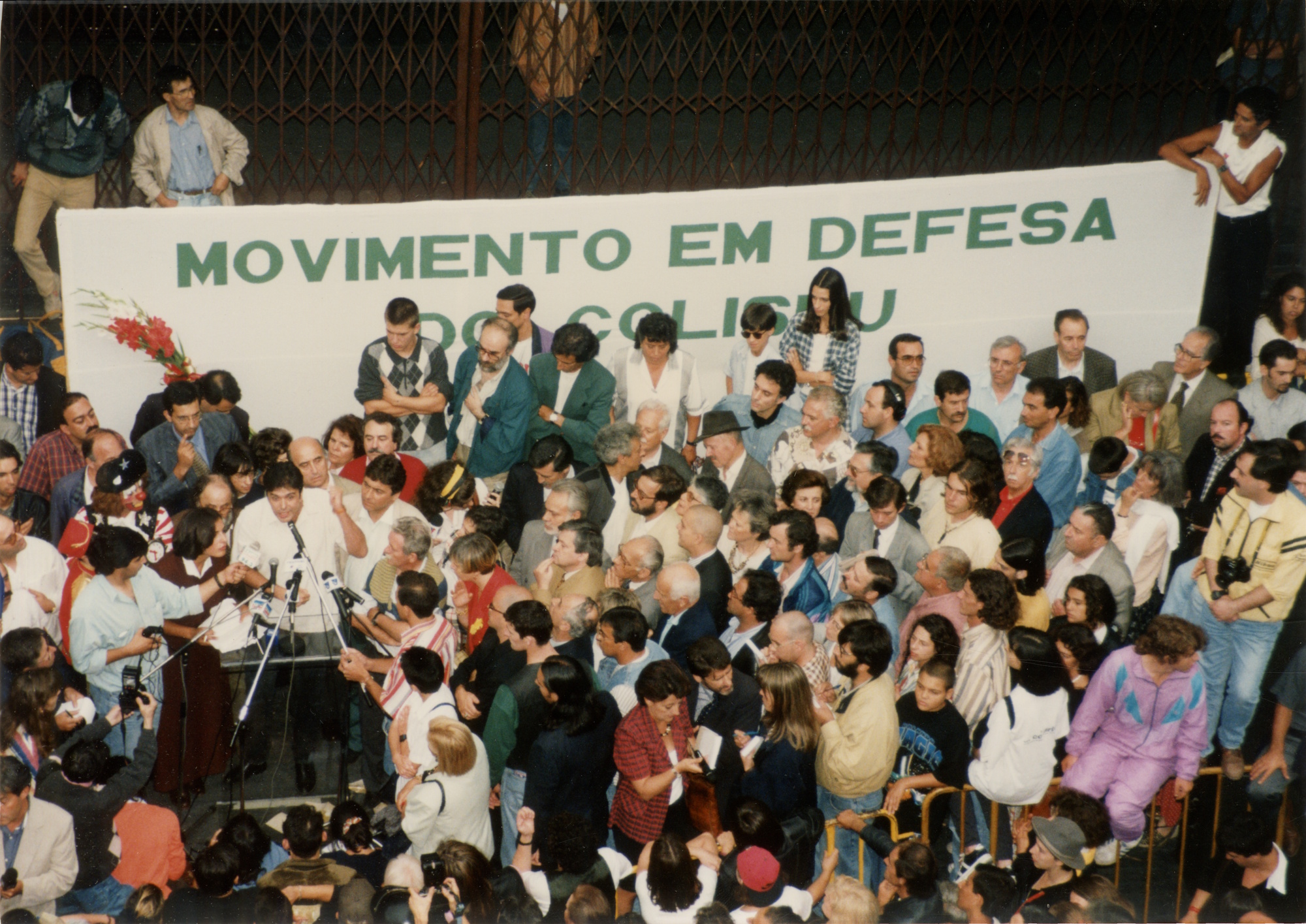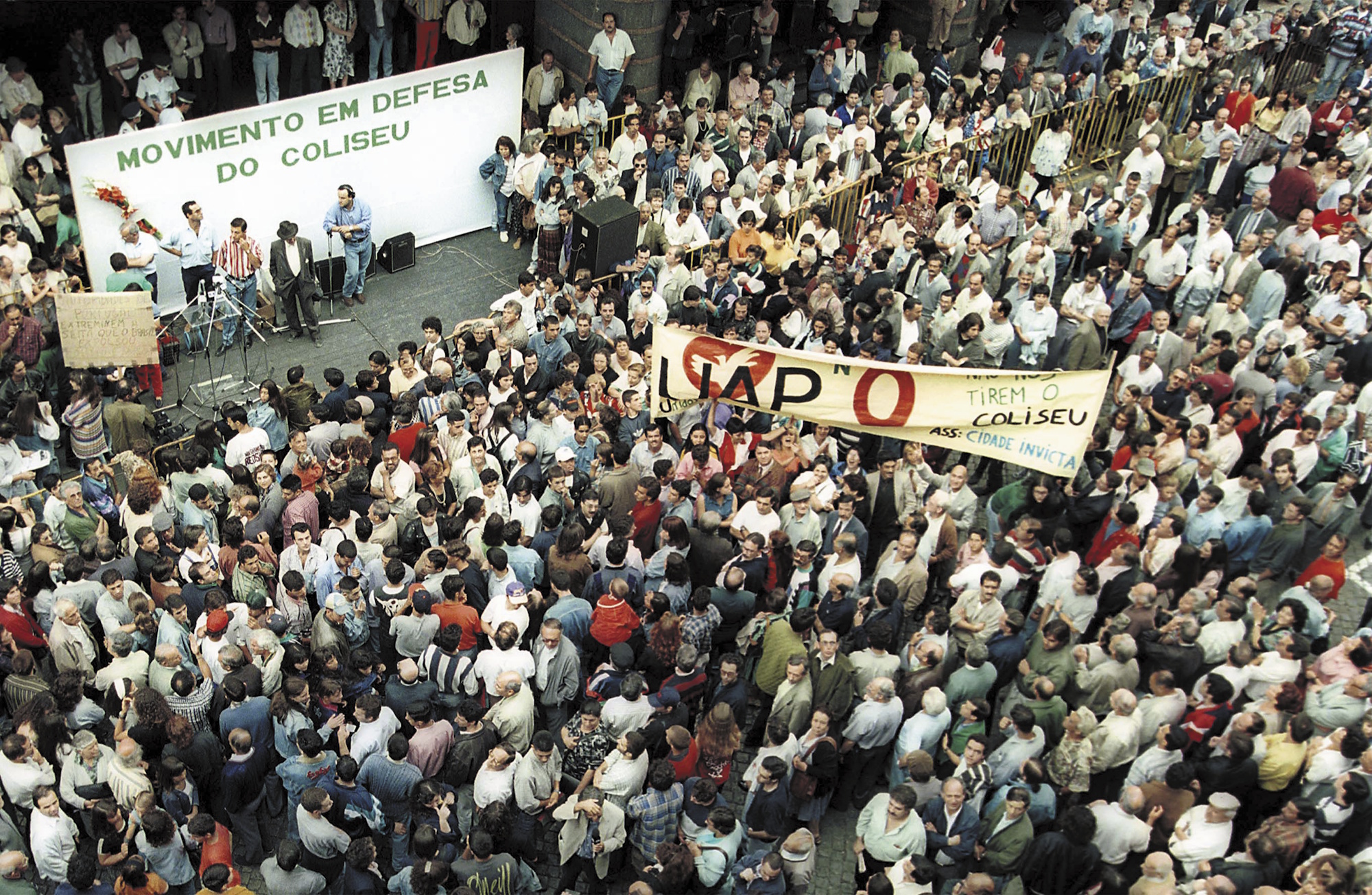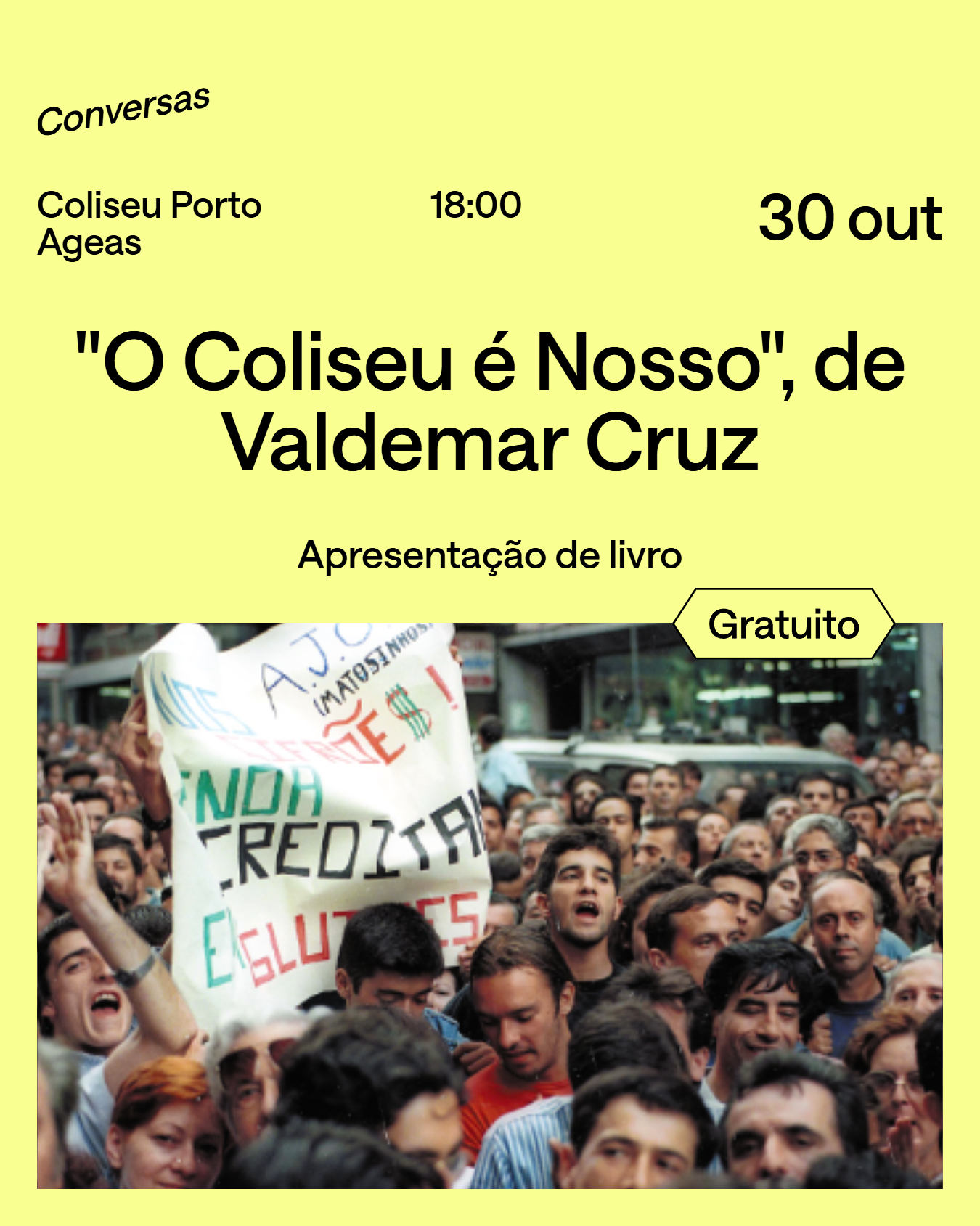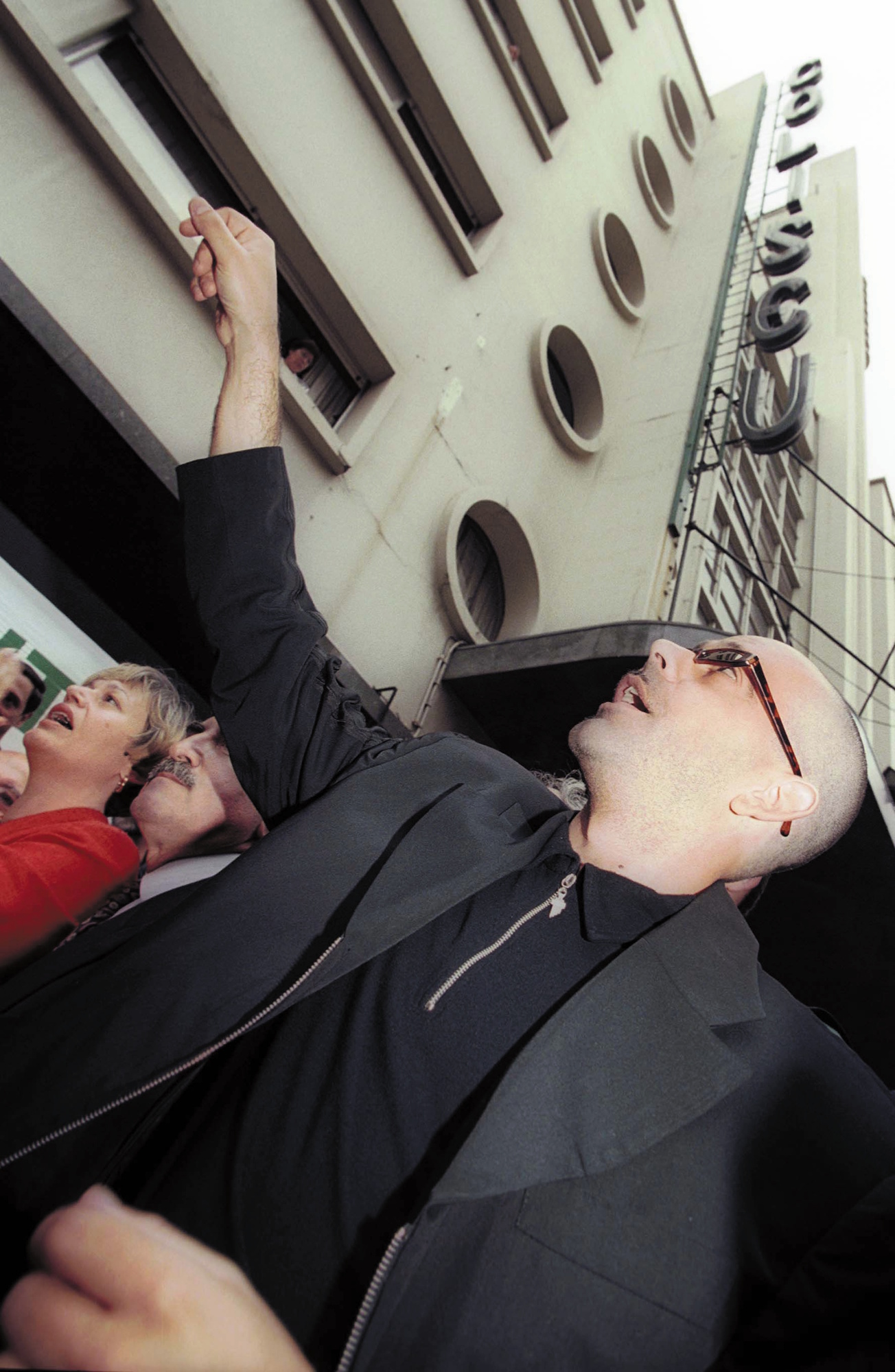EN

Outubro 2025
On August 4, 1995, R. de Passos Manuel was filled with notable figures, protagonists of the cultural scene, and many, many Porto residents. At stake was a popular uprising against the sale of the Coliseu do Porto to the Universal Church of the Kingdom of God. The result of the so-called “Hot Summer of '95” was the creation of the Friends of the Coliseu Association, which is still responsible today for the preservation of a cultural landmark in northern Portugal.
We spoke with Valdemar Cruz, author of the book O Coliseu é Nosso (The Coliseum is Ours), which crystallizes the facts and protagonists of a moment engraved in the collective memory of the city.
For the writer and journalist from Expresso, the book serves to fill a “diffuse memory” and an archive that, “despite the wealth of information at the time, has very diffuse, scattered information.” The result of investigative work, the book also features interviews with the protagonists of the time, whom Valdemar also asked to “look at what happened at the time with today's eyes.”
Although Valdemar was already a journalist in 1995, he followed the situation only on a personal basis: "For me, what was relevant was that the Coliseu was losing the functions for which it was created. Losing its central place—even from a geographical point of view—as a cultural component of the city.“ Moreover, this point of view was reflected in his interviewees: ”The artists repeatedly told me that the Coliseu was the only large concert hall in the north of the country. Losing it would create a much greater imbalance with Lisbon."

© Adelino Meireles / Público

© Adelino Meireles / Público

What makes that day special, according to the author, is that it was “a rare moment when institutions joined forces with popular movements.” When asked if this moment could be repeated, he argues that “history is not made of ‘ifs’,” but that “at this moment, the conditions for large popular movements are probably not in place, not least because over the years there has been a great demonization of street movements.” “And if people are not willing to take to the streets to fight for more intimate issues, such as labor rights, then they would certainly not be willing to fight for cultural facilities.”
The writer promises surprises in the book. Like the iconic moment when Pedro Abrunhosa handcuffs himself to the Coliseu, which was actually a coincidence: “the book has many stories like this, absolutely surprising, unexpected stories, in which people themselves are caught up in events.”

Manifestação de 4 de agosto de 1995 © Adelino Meireles / Público
Share
FB
X
WA
LINK
Relacionados


